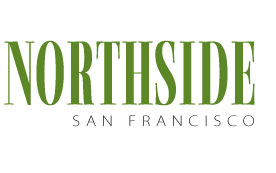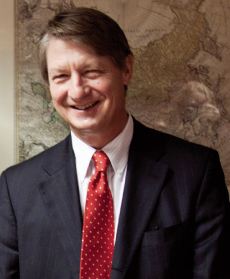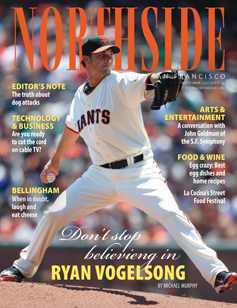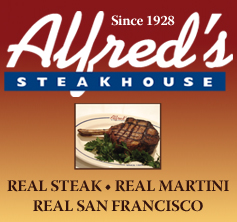 |
 |
|||||||
|
P.J. O'Rourke: 'The mind reels' By John Zipperer  P.J. O'Rourke and his fellow conservatives have
a lot to smile about these days photo: Sonya Abrams In town a month before the election to promote his newest book, Don’t Vote: It Only Encourages the Bastards, O’Rourke appeared relaxed and comfortable discussing the prospects for his fellow conservatives. How times change. A year ago, O’Rourke suggested that the few Republicans remaining after the 2008 election debacle should go somewhere remote, “get into the bourbon and stay there for a couple of election cycles until the nation comes back to its senses and so do we.” This year, the Tea Party – fueled by millions of angry baby boomers – has sparked fear and hopes across the political spectrum. He speaks highly of the Tea Party members he has met. Perhaps only in P.J. O’Rourke can we close the gap between Christine O’Donnell and Chris Daly, but bear with me. San Francisco, which just had its residents vote for the second time in the past six years on a proposal to sentence the mayor to a minimum number of meetings with the Board of Supervisors, is what we can call a “power user” of referenda. So is the state of California. Such direct democracy, O’Rourke noted, came from the original progressive movement, itself a Republican Party spinoff. Fast forward a century to today, and the Republican Party is spawning another movement. But the Tea Party wants to shrink the size of government, not expand it. So is this a new dawn of conservatism? Can the Tea Party even be called conservative? “Americans are really foggy on these terms,” O’Rourke said. “After all, ‘liberal’ in Europe means what we would mean by ‘conservative’ here. Something like the Tea Party is first and foremost populist, which is different. Populism can have a leftish cast; it can have a rightish cast. But populism is a thing unto itself. The Tea Party fits into a long history of American populist movements that range from Jacksonian Democrats to the civil rights movement. Politically all over the map.” O’Rourke cites the late British philosopher Michael Oakeshott for an overarching political view, one that might lead us to understand that the Republicans – and other parties – will continue to spawn new and sometimes unruly movements. “Oakeschott, himself a conservative, makes the point that politics does not have a point to it. It’s not teleological. There is no object to politics,” O’Rourke said. “Politics is an arrangement among persons. Therefore it must be understood primarily as a mechanism, not as something that first and foremost must be good or bad; it can be both at the same time. First and foremost it’s there; it’s like weather.” One political force that O’Rourke said largely blew over without dramatically changing the landscape was the baby boomer generation. The baby boom generation was “a combination of economics and demography,” he said. “It’s simply a fact that we were an immensely large generation, with immense material resources – unheard-of material resources. The whole generation ended up acting like Shelley, Keats and Byron. Because we could.” He should know. O’Rourke has been chronicling the world of the boomers since the seventies. He was one of the young guns who made National Lampoon the country’s leading humor magazine during that time. The magazine was created explicitly to catch on with the baby boomers, and it shared their obsession with sex, drugs and rock ’n’ roll. Now, several decades after the boomers moved through American culture like a buffalo through a snake, O’Rourke doesn’t think there was much lasting impact. “We acted silly in the tradition of young, irresponsible people time-out-of-mind. But the scale of it was such that it affected the whole society in the way of romantic poet twits and fashionable jerks in times gone past. There’s nothing we got up to that [15th-century bad-boy poet] Villon didn’t. There was one of him, and there were millions of us. Imagine a Woodstock full of François Villons! Ugh,” he laughed. “The mind reels.” O’Rourke’s critique of boomers reflects his own rightward political shift in the late seventies. It also ties in with the anti-government rhetoric of the Tea Party movement. “The end result is simply expensive, because, again, there are so many of us. Funnily enough, [my] generation did not design all of these entitlement programs that my generation will be entitled to; it was actually the previous generation that did that. Nonetheless, with those entitlement programs in place, and us coming on for all those entitlements, it’s going to be [expletive] expensive. The real damage that the baby boomers did may have nothing to do with sex, drugs and rock ’n’ roll; it may have everything to do with Medicare and Social Security – and we ain’t seen nothing yet.” John Zipperer is vice president of editorial and media at The Commonwealth Club of California, www.commonwealthclub.org. E-mail: johnz@northsidesf.com |
||||||||
 |
||||||||
|
||||||||

  |
||||||||

